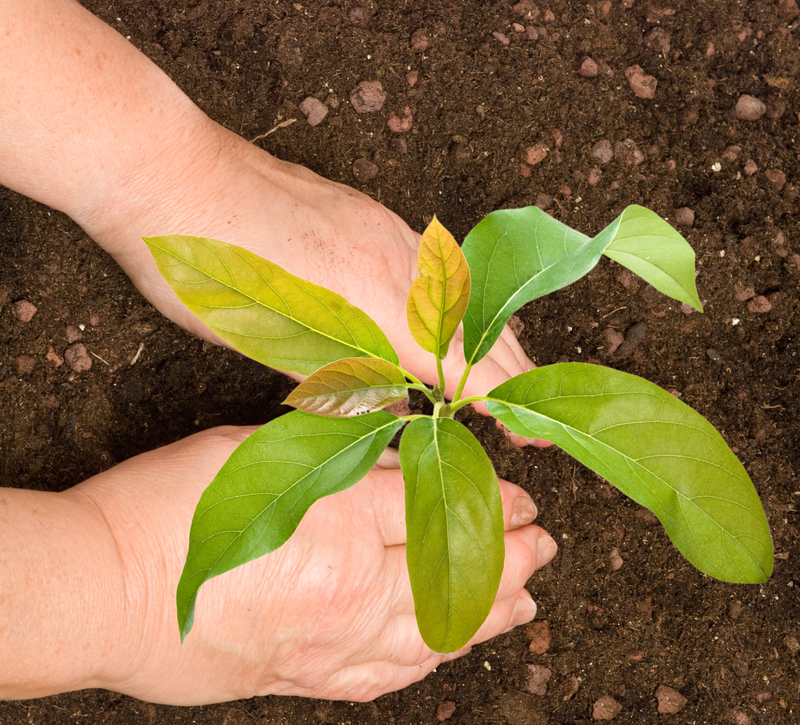Garden Solutions for Heavy Rain
Posted on 11/12/2024
Heavy rain can be both a blessing and a curse for gardeners. While the natural water source is invaluable, excessive rains can lead to waterlogged soil, plant diseases, and even soil erosion. Tackling these issues effectively requires strategic planning and practical solutions. In this article, we will cover various garden solutions for heavy rain, provide helpful tips, and conclude with the pros and cons of these methods.
1. Opt for Raised Beds
Raised beds are an excellent solution for gardens prone to heavy rain. By elevating the soil level, you can ensure better drainage and avoid waterlogging.
- Materials: You can construct raised beds from a variety of materials including wood, stone, or even recycled plastic.
- Construction: Build the beds at least 12 inches high to provide ample room for root growth and water drainage.
- Soil Mix: Ensure you fill the raised beds with a mix of well-draining soil and organic matter for optimal plant health.

2. Install a Rain Garden
A rain garden is designed to capture and filter stormwater runoff. This not only helps to manage heavy rains but also improves the local ecosystem.
- Location: Place the rain garden in a low-lying area where water naturally pools.
- Plant Selection: Choose native plants that are tolerant of both wet and dry conditions.
- Soil Preparation: Amend the soil with compost and sand to enhance its drainage capabilities.
3. Implement Proper Water Diversion Techniques
Diverting excess rainwater away from your garden can prevent waterlogging and soil erosion.
- Gutters and Downspouts: Ensure that they are clean and direct water away from your garden. Extension tubes can help to transport water further away.
- French Drains: Install these underground structures to divert water from soggy areas.
- Swales and Berms: Use these landscaping features to channel water away from vulnerable areas.
4. Improve Soil Drainage
Good soil drainage is crucial for preventing waterlogged soil during heavy rains.
- Soil Amendment: Add organic matter such as compost to improve soil structure and drainage.
- Aeration: Regularly aerate your soil to increase water infiltration.
- Mulching: Apply a layer of mulch to help manage soil moisture levels.
5. Use Porous Paving
Permeable or porous paving materials allow water to infiltrate the ground, reducing surface runoff and promoting groundwater recharge.
- Materials: Consider using porous concrete, gravel, or paving stones with gaps.
- Installation: Ensure proper installation with a sub-base that aids in water drainage.
- Maintenance: Keep the paving clean and free of debris to maintain its permeability.
6. Install Rain Barrels
Rain barrels can be used to collect and store rainwater for future use, reducing the impact of heavy rainfall on your garden.
- Collection: Place barrels under downspouts to capture runoff from rooftops.
- Storage: Ensure you have enough storage capacity for your area's rainfall patterns.
- Usage: Use collected rainwater for watering your garden during dry spells.
Pros and Cons
Like any solutions, garden techniques for managing heavy rain come with their own set of advantages and disadvantages.
Pros
- Improved drainage reduces the risk of waterlogging and plant diseases.
- Better soil structure promotes stronger and healthier plant growth.
- Water conservation through rain barrels and permeable paving.
- Enhanced aesthetic and ecosystem benefits with rain gardens.
Cons
- Initial investment in materials and labor can be high.
- Ongoing maintenance is required to ensure effectiveness.
- Improper installation of diversion techniques could lead to other issues like soil erosion.
Tips for Garden Care During Heavy Rain
- Regularly check the weather forecast and prepare your garden accordingly.
- Inspect drainage systems frequently to ensure they are not blocked.
- Choose plants that are resilient to both wet and dry conditions.
- Maintain a healthy layer of mulch around plants to regulate soil moisture.

Key Takeaways
- Effective drainage is essential for managing the impacts of heavy rain on gardens.
- Raised beds, rain gardens, and proper water diversion techniques can mitigate the effects of heavy rains.
- Soil improvement practices like adding organic matter and aeration enhance drainage.
- Using porous paving and rain barrels not only manages rainwater but also promotes sustainability.
Conclusion
Heavy rain doesn't have to be detrimental to your garden. By employing techniques like raised beds, rain gardens, proper drainage, and water diversion methods, you can protect your plants and even turn the excess water into a beneficial resource. While these solutions require some investment and ongoing maintenance, the benefits to your garden and the environment make them well worth the effort. With careful planning and implementation, you can enjoy a thriving garden regardless of the weather conditions.
Latest Posts
Must-Try Planting Concepts for a Beautiful Autumn Garden
DIY Guide to Perfectly Sharpening Garden Shears at Home
Essential Techniques for Maintaining Clean and Lush Artificial Grass
Transform Your Space With Meaningful Zen Garden Plant Choices




